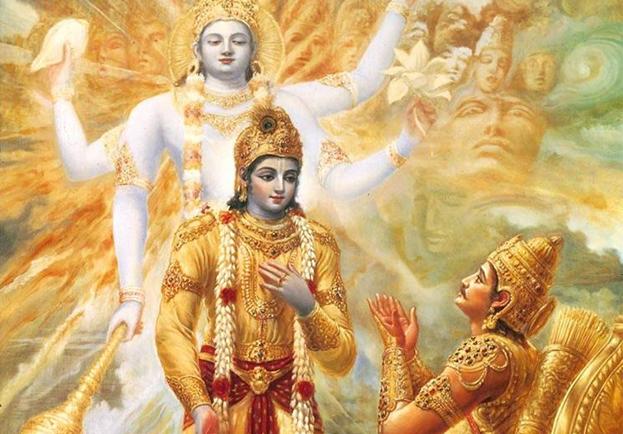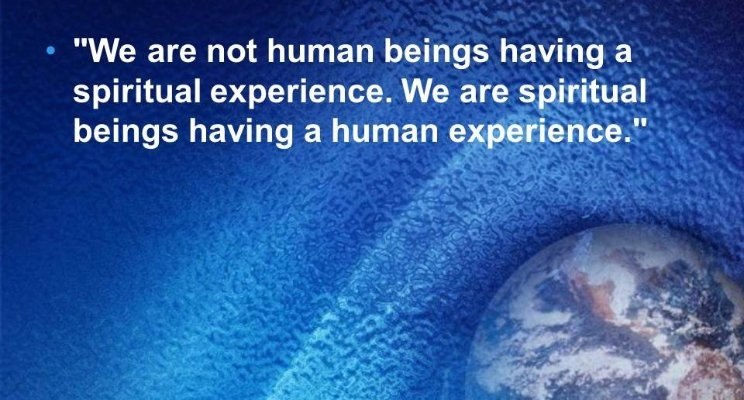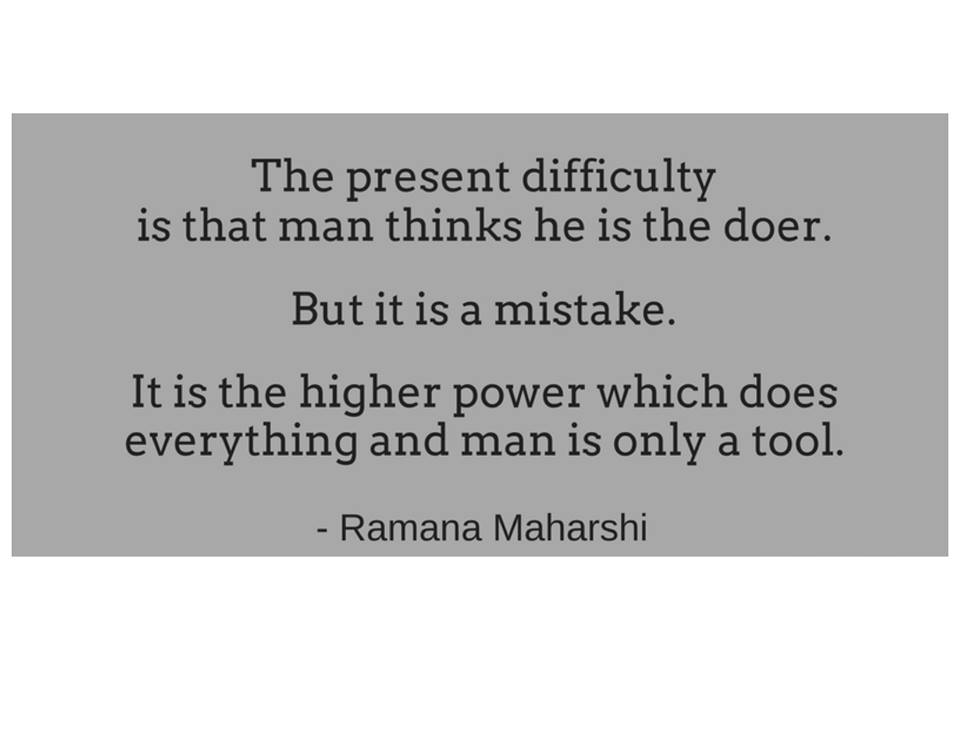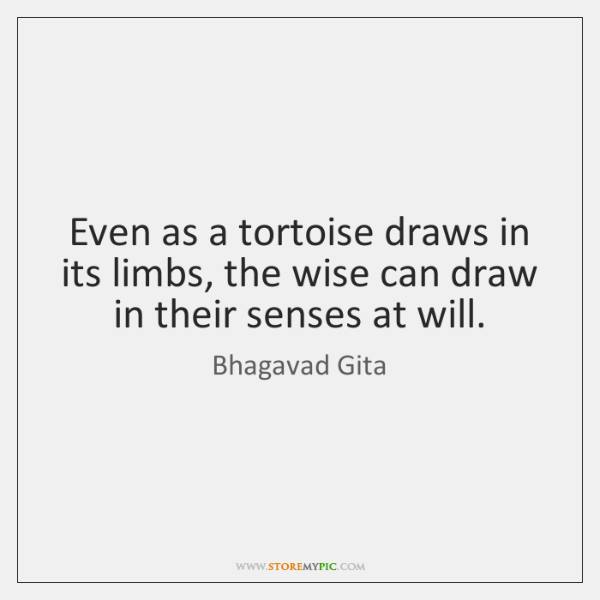Meet Janaki Raj Shrikanth, a motivational speaker for children and adults alike.
She will be doing a month of discussion on practical messages from the Bhagavad Gita, a manual for life, to make everyday a celebration of excellence all of May 2019 on Indoindians Facebook.
1 May
 The Bhagavad Gita is set against the backdrop of the Mahabharata war at Kurukshetra. Arjuna, the greatest warrior of his times, experiences a moment of deep confusion.
The Bhagavad Gita is set against the backdrop of the Mahabharata war at Kurukshetra. Arjuna, the greatest warrior of his times, experiences a moment of deep confusion.
Krishna steps in to allay his worries and points out that ‘to fight or not to fight’ is only one aspect. The real issue is deep-rooted, and stems from attachment.
Attachment is not to be confused with love – Attachment comes with expectations, love is pure and unconditional. With attachment comes an inability to perform duty. With love comes a clarity to be able to perform duty at every opportunity.
2 May
Uttering the words “I don’t know” is hard especially when you feel that you have knowledge of the subject.
But try saying it and watch the magic unfold. At the mind’s level, you go one step further, and accept complete surrender. You are suddenly ready to receive, learn new things.
This is the wondrous and divine effect of surrender.
As water flows from a higher level to a lower one, knowledge also flows from a teacher, adept and knowledgeable, to a seeker, excited and ever-ready to learn.
Jai Shri Krishna
3 May
Everyday, we nourish our body – necessary, but limited.
To make every experience beautiful and within the domain of excellence, we have to tap into the enormous divine potential that lies deep within. The soul, therefore, has to be nourished.
The soul is imperishable, unaffected and remains pure. Nourishing the soul will help us see the truth – most happenings are only at the body level, skin deep. Even a daily reminder of this fact helps us to go beyond everyday occurrences.
Without this holistic treatment, we continue feeling bored, mechanical or burnt out performing our actions.
Jai Shri Krishna
4 May
The feeling of hot or cold bothers us at the sensory level.
The thought of pleasure or pain worries us at the mind’s level.
The words of praise or insult disturbs us at the ego level.
All these three, perceived as good or bad, are but temporary. What can we do then ?
Bear with them patiently, as they will pass like a cloud on a dark day.
This forbearance is an essential quality that will reduce the pendulum swing of our mind. The essence of it is captured in the phrase ’This too shall pass’.
Jai Shri Krishna
5 May
To achieve excellence in any task, a conviction is needed. A conviction of the goal that we set out after. Anything that is not conducive to this goal has to be dropped. That’s why shopping and coming away only with the items on our list often feels like an achievement.
Cajoling the mind to stand up for a priority, therefore, is crucial. This is true for the material as well as spiritual pursuits. Else, we fall for everything along the way. Multitasking scatters the mind, Focus sharpens it.
Jai Shri Krishna
6 May
While performing an action, the stress and anxiety related to the outcome weighs us down.
Renouncing the fruit of action allows us to focus on the process at hand. Being in the present moment, we can make the best of our resources and potential. What’s more, we actually enjoy the process.
A musician prepares to render a song – she could deliver it as usual, more creatively than ever, give a terrible performance, or lose her voice. A musician who focuses on the concert review in tomorrow’s newspaper cannot be in the present and enjoy singing today.
Jai Shri Krishna
8 May
For years, we have been conditioned to feel incomplete without a particular object, situation or relationship. ‘Me Plus ____ = Complete” is an equation we identify with all too easily.
The truth, however, is that we are already whole, and have always been. We can be like that ocean, which does not feel less or more complete while rivers rush to meet them. Neither the addition nor subtraction of a river makes a difference.
At the base of contentment is a feeling of gratitude for what we have. Instant peace ensues, as does a quiet acceptance of what is to follow.
Jai Shri Krishna
9 May
When we hear the word ‘Yajna’, our mind takes us to a fire into which divine offerings are made. This physical Yajna is actually symbolic of the real sacrifice to be done within ourselves.
We are bound by action when it is of a selfish nature, as there is attachment involved.
The ‘Yajna’ sacrifice indicates performing unselfish acts without being attached. It has us placing another’s needs before our own, and offering all such actions unto the Supreme.
This attitude will increase our altitude, and set us free. Just as fire does, the very act of selflessness purifies all that is offered unto it.
Jai Shri Krishna
10 May
Nourishing each other on a path not only makes the journey pleasant, but also promotes peace in the long run. We can learn together, cherish and work together. This is crucial in every relationship – between spouses, friends, colleagues.
We can learn from nature here. Every aspect nourishes each other, without expectation of any credit or reward.
In the excitement that an idea brings, we sometimes forget to look at whether it benefits both parties. Seeming solutions in these cases tend be one-sided. A win win situation, on the other hand, is when both parties submit themselves to the common good.
The truth remains that in a relationship that matters, when one person loses, both have effectively lost.
Jai Shri Krishna
 |
 |
11 May
We are all leaders in our own right. At home, at work, in the community, we are looked up to and emulated. Whatever a leader does, others will follow.
The exemplary leader makes himself accessible to others, listens to them, and inspires rather than commands them to act.
The attitude of selflessness is the hallmark of such a leader. This talks of the ability to share knowledge freely, to listen without judgement, and bringing out the best in another.
Such a leader is driven by a noble vision and values, and serves tirelessly. He is referred to as a Servant Leader, and he adopts the ‘Let’s do this together” rather than “Do this” attitude.
Jai Shri Krishna
12 May
All of us have three moods or Gunas that make their presence felt when we face a situation. The sattvik mode enables us to respond calmly. The rajasik mode often makes us excited, and we react aggressively. The tamasik mode causes us to become indolent.
Using these modes as tools rather than merely come under their sway is the key to excellence.
Self awareness, then, is key.
Calmly analysing what mode was in play in a particular situation can help us amend the attitude for future experiences. We also learn to be empathetic to others, understanding that the play of Gunas is driving their reaction just as it drives ours.
The goal is to spend maximum time in Sattva. This has major health benefits – it helps to avoid lifestyle related diseases and stress.
Jai Shri Krishna
13 May
Attachment to an action can happen before, during and after the action is performed. Rigidity in the how of an act, the pride of doership, and the obsession with results – all these three can lead to misery.
Through contemplation and practice, when one overcomes these, stress is overcome. The mind remains unattached, like a lotus leaf on water. (The lotus leaf does not get wet despite growing in water.)
What’s more, water droplets bead up on the leaf and look like pearls. This is a reminder that while unattached, we can still make every action count by offering them unto a higher, better, nobler cause. Such an attitude helps us enjoy what we are doing without constant worry about results or fruit of action.
14 May
Everyone of us wants only one thing. Sure, we may have a long list of ‘wants’ but ultimately, we want HAPPINESS.
As long as we wish for a previously enjoyed moment to revisit us, we get stuck in the past. If we decide that we will be happy with a desired result, we postpone happiness. And just like that, the present moment is lost, and happiness remains elusive.
If we allow ourselves to be happy here and now, then every action we perform starts from a place of happiness. A positive stance is half the journey won!
This attitude of happiness is not a given – it has to be exercised like a muscle. We have to remind ourselves everyday that being happy is our truest nature.
Jai Shri Krishna
15 May
It is the mind alone which causes us to be bound or free. It can be our best friend or our own worst enemy.
For excellence, we have to befriend this mind. We have to cajole it into following the subtler intellect, which discriminates between conducive and non-conducive actions.
What this calls for is lifting our lower self by our higher self. Through efforts, we can make each moment worthy.
It is a journey that one must undertake on their own. None else can be proxy for us, just as none else can eat for us when we are hungry.
Jai Shri Krishna
16 May
In our search for excellence, we often give great value to tangibility. As long as we can sense it, we believe. As long as we can sense it, we trust in the experience and benefits.
The greatest, however, remains intangible. We cannot see the unsung hero who has contributed to our success. We cannot see values and faith – a lonely place to be!
What if were to shift our vision, and focus not on the magic but on the Magician? See the string that holds the beads (worlds) together?
We would realize that we are never alone. All our challenges would turn into opportunities to learn without worrying. From this fearlessness would come a rare capability to see the intangible, to see that the magic everyday is the work of the Supreme Magician, the Lord.
Jai Shri Krishna
17 May
While performing our daily work, we sometimes experience a sense of annoyance. We feel we are stuck in a mechanical rut of work, or desperately need a break.
This is a clear indication that we need to revisit the attitude with which we approach work. Work is duty, and duty by nature is often unpleasant. The Gita tells us to love what we do, rather than do what we love to.
Work is worship, and our duties are opportunities to perform acts of veneration. With this attitude, every act I perform is an offering to the Lord. My efforts are given unto the highest, noblest, supreme ideal. For no substandard act will do as an offering, just as no substandard ingredient will do when making offerings for prayer.
Monday morning blues will be a thing of the past. In its place will stand sheer enthusiasm and love for the privilege of working for Him.
Jai Shri Krishna
18 May
When things go well, we are all too ready to accept doership and responsibility. It’s when the tumble happens that we look for someone to blame.
The Gita does not advocate abandonment of action. Rather, it reminds us to submit to the real Doer of all acts in this world. It reminds us to submit to His grand plan.
When we do this, we realize we are only able to act with His grace. All that remains is for us to turn into worthy instruments in His hands and perform all actions with the best of our productive potential, calmly.
All the fame and fortune that ensues are enjoyed by us, but offered once again unto Him. Krishnarpanamastu
Jai Shri Krishna
19 May
When we hear our favourite song, we don’t feel jealous of the singer. Godliness is experienced. As long as I am not a singer, I am happy to praise her singing.
Often though, when someone achieves excellence, jealousy rears its ugly head. We find it difficult to acknowledge another’s achievements when it’s in an area where we assume our own greatness.
The Gita urges us to look at the grace of the Almighty in such an act, and simply bow down to that glory. Further, any great act is only a small fraction of the real glory given by that grace.
This helps us convert jealousy into inspiration at every stage of our lives, and rejoice in another’s success.
Jai Shri Krishna
20 May
Throughout life, we spend a great deal of time worrying -‘why’ning and ‘how’ling about every event.
All our worries can be classified into two categories – aquiring something ( an object, a relationship, a favourable situation) and protecting what we have acquired.
When we have faith in the Lord, we realize that these worries are misplaced. We were never really acquiring or protecting anything ; He was.
So everyday, if we perform our actions as duties , as an offering to the Lord, we can stop worrying. He will take care of both our needs and protecting us and ours.
Jai Shri Krishna
 |
 |
21 May
Pleasure is a clear manifestation of the joy one feels within. Naturally, we tend to take pleasure very seriously.
The Gita presents 3 categories of pleasure, depending on the process and result.
That which begins with struggle and ends up in excellence is sattvik, and is sustainable and satisfactory.
That which begins with delightful pleasure and ends up in pain and sorrow is rajasik, and often leaves us with regret.
That which begins with inertia and spirals out of control to the depths of dejection.
The choice is clearly ours. Let’s think BIG, let’s set our goal at high, noble and best.
Jai Shri Krishna
22 May
A tortoise withdraws its limbs as well as head into its shell when it senses danger. The Gita uses this analogy to indicate what we should do when we sense a diversion or danger.
The diversion comes in the form of a pull of the senses by objects in the world. Our love of instant gratification drives us to run where these senses take us.
We require dispassion to look at these senses as mere reporters, and nip the attraction or repulsion at the bud. Honesty with ourselves stands at the root of this dispassion.
When we cannot resist a sense object, but we know it’s not conducive to our growth – we have to put distance between ourselves and the object. With time and practice, conviction settles in. Proximity of the object will no longer make a difference, and we remain unswayed!
Jai Shri Krishna
23 May
The scriptures make us understand that the Lord is won over by our devotion, not by the material offerings.
The Lord says “Offer a leaf, flower, fruit or a little water. That will suffice” in the Gita. This is not a green signal for complacency in our worship.
Leaf – we are being urged to read inspirational, positive messages everyday.
Flower – our 100% effort is to be offered in acceptance of being an instrument in His hands.
Fruit – acceptance of all outcomes as a part of His grand plan.
A little water – A few tears shed in pure ecstatic love for Him.
The effect of offering these is truly extraordinary, and brings us closer to Him.
Jai Shri Krishna
24 May
Among the factors holding us back from excellence, fear ranks pretty high. The Gita mentions fearlessness first in a set of qualities that are classified as Divine.
It is fear that prevents us from moving forward on a path, and from finding happiness on it.
The fear of failure stems from the fear of the unknown. The response is often to freeze or run. To those who adopt the third option, fearlessness, peace sets in automatically.
Faith is the cornerstone of this state of mind, and with it, the unknown can be traversed. The mind breaks free from its shackles, and steps into every scene with clarity.
Jai Shri Krishna
 |
 |
25 May
The mind, no doubt, has to be tamed to be accessible. The Gita discusses two aspects of the path to be taken for making the mind our slave.
The first is abhyasa or consistent and continuous practice. This is the discipline of practice uninterrupted, focused on the ‘now’ of the task. We gain momentum in our work, and an increased enthusiasm for the work also develops.
The second is dispassion or detachment, not to be confused with disinterest. This refers to knowing the true temporary nature of all that we crave for. Being prepared will spare us ‘surprises / shocks’ along the way. The preparation also helps us drop acts and objects that are deterrents.
Both Practice and Dispassion are like the wings of a bird, and are equally important for keeping our journey balanced, and our mind calm.
Jai Shri Krishna
26 May
The Bhagavad Gita classifies devotees into four kinds. All four are recognized as devotees, but they defer from each other in intention, and therefore attitude.
The Artha is one who reaches out to Him in times of distress.
The Artharthi is one who seeks a higher standard of living or prosperity.
The Jignasu is eager to gain wisdom and greater knowledge about the Lord
The Jnani, the man of knowledge, has understood His true nature. He seeks only the Lord.
While all four are out to attain their goals, the Jnani is able to constantly differentiate between what is real and what is illusory. To Him, the Lord reveals HImself clearly, and expresses through him.
Jai Shri Krishna
27 May
The Gita lists humility as the first among 20 qualities that qualify one as knowledgable. It is the true mark of a wise man.
Blessed with this humilty, we see the commonality rather than the differences in all beings around us, and treat them with respect.
It is this quality that makes us realize we are a small part of something spectacular. It makes us more receptive to learn of our role and purpose in this world, and fulfil them without pride.
It allows us to see that every resource I use to achieve my goals and dreams are His, and should therefore be used for His work. This includes the body that we have.
With this humble frame of mind, we achieve excellence in thought, word and deed.
Jai Shri Krishna
 |
|
28 May
The Bhagavad Gita reinforces the statement ‘You are what you eat’. It classifies food into the 3 guna types.
Sattvik food is that which promotes longevity, and provides us with necessary nutrients long after we have consumed it. Juicy like a fruit, it can be digested easily.
Rajasic food promotes distress when consumed in excess. Its sharp taste causes long lasting pain. It takes great effort to break free of the habitual intake of such inputs.
Tamasic food refers to processed food, which are often convenient, but often contain ingredients harmful in excessive amounts. It results in ill-health and provides almost no nutrition.
It is beneficial to look at ‘food’ as all kinds of sensory inputs. It’s not just what we eat, but what we hear and see as well. All of these have a deep impact on our mind and attitude.
Including ‘food’ that have necessary nutrients in our diets will ensure a healthy mind and body.
Jai Shri Krishna
29 May
It is the distinct capability of a human being to learn and evolve. At the heart of this is the intellect or buddhi.
The Bhagavad Gita classifies this buddhi into 3 types based on how the predominant Guna views dharma (righteous attitude to perform one’s duty)
A sattvik buddhi resonates clarity. It is clear about what needs to be done, and is packed with sufficient courage to drop what should not be done. It is steeped in dharma.
A rajasik buddhi is one that is clouded by greed, desire and anger. It wears tinted glasses that are not able to see clearly the difference between dharma and adharma.
A tamasik buddhi is so deluded that it sees adharma as dharma. It justifies the means to the end, even for the vilest act.
As we race through life, it is crucial that we harness the power of this intellect, and constantly work at guiding it towards a better, nobler purpose.
Jai Shri Krishna
30 May
The Bhagavad Gita begins with the word ‘Dharma’ and ends with the word ‘Mama’ – referring to ‘My duty’.
Shirking duty is never an option. When we arise to the call of duty everyday, we effectively transform challenges into opportunities.
Duty has to be performed in respect to 3 factors – Time, Place and Role. We must have clarity to dedicate ourselves to the role that we are playing at a particular time. Further, we should be sensitive of the time and place in which we stand.
Paying attention to these three factors will help us achieve excellence at every stage of our lives. We will consider it a privilege rather than an inconvenience to perform our duty and make the best of it.
Jai Shri Krishna
31 May
The Bhagavad Gita, although delivered by Krishna to Arjuna more than 5000 years ago, remains extremely relevant to our present times.
The concluding verse of the Gita indicates that where there is Krishna, and a willing disciple like Arjuna, there will always be victory.
We must, therefore, have faith in both factors – self effort and the grace of the Lord. If we rely on self effort alone, we experience deep sorrow when things don’t go our way. If we rely on grace alone, we will sit back and wait for magic to happen.
We have to perform all action as an able disciple ( a disciple is one who is willing to be discipined by the Guru), and offer them all to the Lord, praying for His grace.
This merging of wisdom and effort will establish us on the path of excellence, and sustain us there as well.
Jai Shri Krishna
by Janaki Srikanth for Indoindians in May 2019






























